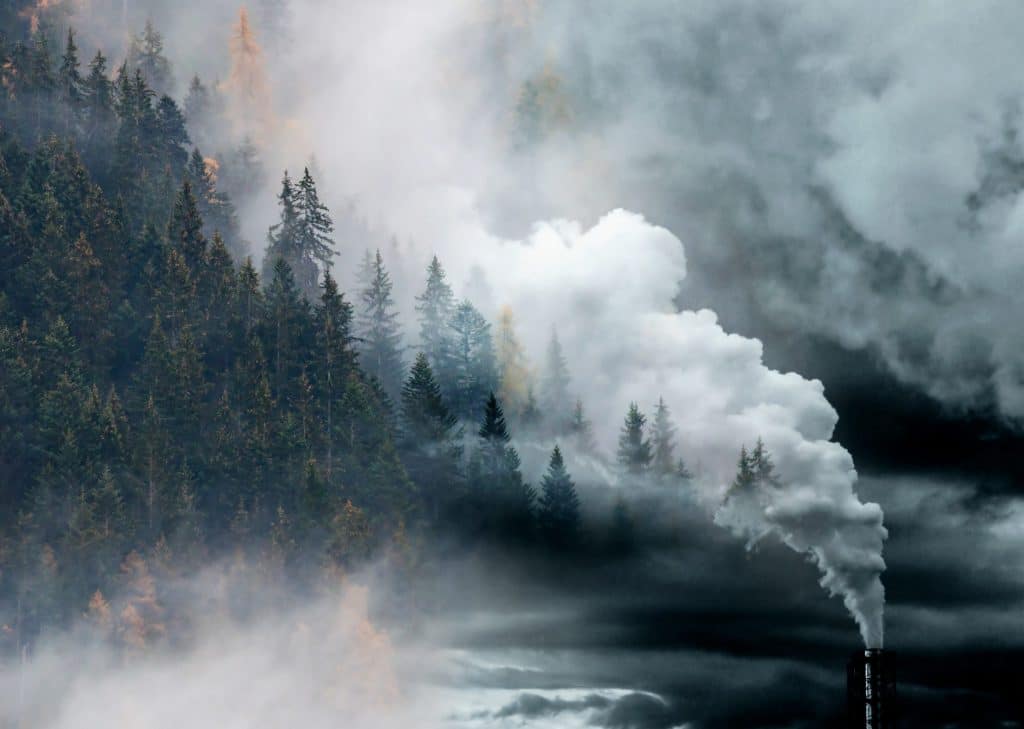Environmental groups call for a comprehensive wildfire prevention plan, emphasizing the urgency of rapid emissions reduction.
Unceded Anishinaabe Algonquin Territories [OTTAWA], 10 April 2024:
Climate Action Network Canada welcomes the federal government’s proactive approach to dealing with the upcoming wildfire season, and calls on Ottawa to swiftly enact strong climate policies such as the emissions cap to reign in the pollution fuelling worsening climate impacts, in addition to adaptation measures.
Canadians are overwhelmingly concerned about climate impacts, and rightfully so. As fires started burning in drought-stricken parts of the country as early as February, it is essential that the federal government, as well as all other levels of government and citizens, adapt to increased climate events. These impacts have only increased in size and intensity over the past years. Last summer’s devastating wildfires across the continent displaced entire communities, damaged the habitats of many wildlife species, led to dozens of smoggy days, forced children to stay indoors and imposed negative economic impacts: the need for action could not be clearer.
Adaptation and mitigation action must go hand in hand. Reducing emissions – starting with Canada’s biggest polluters – is key to preventing fires from getting worse and protecting our loved ones and our collective health. Climate change more than doubled the likelihood of extreme fire weather conditions in Quebec last year, and 37 per cent of burned forest area in Western Canada and the United States over the last few decades can be linked to 88 major fossil fuel producers and cement manufacturers.
The federal government must prioritize the swift enactment of the oil and gas emissions cap, the most effective way to tackle outsized emissions from Canada’s most-polluting industry. A cap is supported in every region of the country – including in Alberta. In addition, research by the Canadian Association of Physicians for the Environment found that a strong emissions cap would prevent more than 4,800 deaths, an economic benefit of $45.1 billion over 10 years.
Climate Action Network Canada calls on the federal government to regulate runaway emissions from the oil and gas sector without any further delay, ahead of this year’s wildfire season.
Caroline Brouillette, Executive Director, Climate Action Network – Réseau action climat Canada:
“Today’s announcement puts our communities and loved ones at the heart of climate policy. But preparing for the increasingly devastating impacts of climate change, while crucially important, is not enough to protect Canadians. To cap wildfires and other climate impacts, the government must cap oil and gas emissions. Other sectors and everyday Canadians are reducing their emissions, while for decades the oil and gas sector has increased its pollution and pushed back against every form of accountability. Further delay benefits only oil and gas executives’ pocketbooks and climate-denying politicians.”
Amara Possian, Canada Team Lead, 350.org:
“We welcome federal investment in wildfire preparedness, but without urgent action to slash greenhouse gas emissions this is just a band-aid solution. The science is clear: to extinguish the fires and truly tackle the climate crisis, Trudeau must stand up to the fossil fuel industry. He can start by delivering his promised cap on the oil and gas sector’s emissions without further delay.”
Tom Green, Senior Climate Policy Adviser, David Suzuki Foundation:
“Wildfires and other climate extremes are only going to get worse and the costs higher unless we drive down emissions in addition to preparing. Yet some political leaders want to stall climate action, acting on behalf of Big Oil and spreading misinformation. We need an all-hands-on-deck effort across the political spectrum and at all levels of government tackling climate change, improving affordability and cleaning up the air. Capping the oil and gas sector’s emissions is essential.”
Andrea Koehle Jones, Founder, The ChariTree Foundation:
“Children across Canada and around the world are counting on leaders to protect them from the devastating impacts of wildfires and other climate-related disasters.
“We commend the federal government for its efforts to prepare for what will likely be another record-breaking fire season. It is vital that Ottawa and civil society groups urge need for rapid emissions reduction as wildfire season approaches, encompassing measures such as reducing emissions from oil and gas, halting the logging of ancient forests, promoting renewable energy, establishing resilient infrastructure and land management practices, and strengthening firefighting resources. Moreover, enhancing community resilience through wildfire and environmental education, preparedness, and early warning systems is crucial.”
Kim Perrotta, Executive Director, Canadian Health Association for Sustainability and Equity (CHASE):
“Last summer, wildfires in Canada placed 200,000 people on evacuation orders. They displaced Indigenous communities. They exposed ten of millions of people to toxic air pollution. We desperately need a well funded wildfire strategy in this country. But more importantly, we need to get emissions from our oil and gas sector under control; to do our fair share to stop global warming.”
Liz McDowell, Senior Campaigns Director, Stand.earth:
“Forests in Canada will continue to burn until we put a cap on pollution from oil and gas — our country’s largest and fastest growing source of climate emissions — and stop logging the old forests that are our best protection against devastating mega-fires. While we applaud the federal government for taking steps to prepare for what will likely be another record-breaking fire season, it is more important than ever that governments actually address the core causes of these devastating fires — namely, bad forestry practices and rising emissions from oil and gas.”
Salomé Sané, climate campaigner, Greenpeace Canada:
“By continuing their business-as-usual, and their unrealistic stories of large-scale carbon capture, the fossil fuel industry is actively worsening the severity of wildfires, creating the conditions for another destructive summer in Canada.
“Adaptation is essential to keep communities safe but to truly put out the fires, we need to ensure the fossil fuel industry is on the hook for fanning the flames of climate destruction. This means that the Canadian government must commit to an emissions cap in the oil and gas sector with ambitious reduction targets and regulations immune to the relentless lobbying of the industry. After escaping accountability for decades, it is time that the federal government holds the fossil fuel industry responsible for climate disasters, and imposes an emissions cap credible enough to prevent another dark year of wildfire destruction.”
Aly Hyder Ali, Oil and Gas Program Manager, Environmental Defence:
“Millions of Canadians across the country will once again experience a devastating wildfire season. Last year, tens of thousands of families were displaced and countless livelihoods were destroyed because of the fires. We desperately need to address the source of the problem – greenhouse gas emissions. And we urgently need an emissions cap to limit and reduce greenhouse gas pollution from Canada’s largest source – the oil and gas industry.”
Andréanne Brazeau, Climate Policy Analyst, Équiterre:
“Record after record, the climate crisis is getting worse before our very eyes. And our response? To keep on giving billions of dollars to the fossil fuel industry: the main cause of the terrible situation we’re in. Announced with great fanfare during COP28, the draft regulation of the emissions cap on the oil and gas sector hasn’t seen the light of day. It’s time to get things moving.”
-30-
Canada’s farthest-reaching network of organizations working on climate and energy issues, Climate Action Network – Réseau action climat (CAN-Rac) Canada is a coalition of 150 organizations operating from coast to coast to coast. Our membership brings environmental groups together with trade unions, First Nations, social justice, development, health and youth organizations, faith groups and local, grassroots initiatives.
For more information or to arrange an interview, contact:
Vicky Coo, Communications Manager
comms@climateactionnetwork.ca

